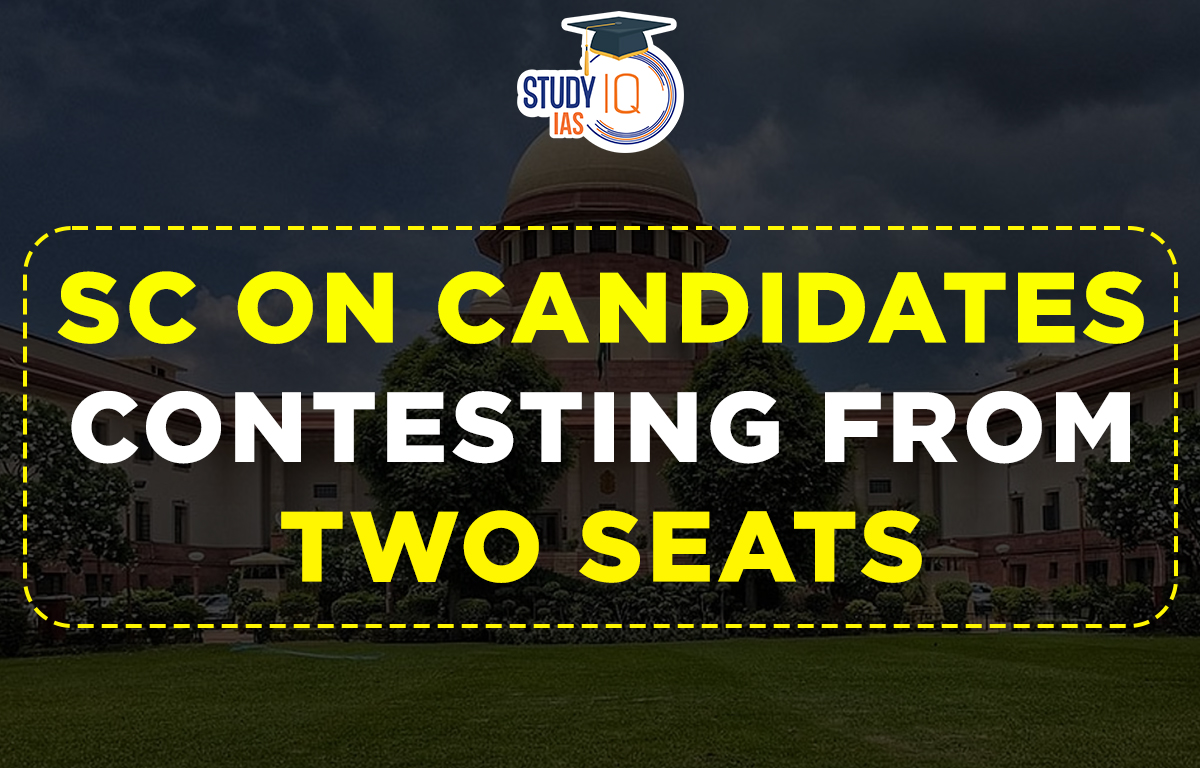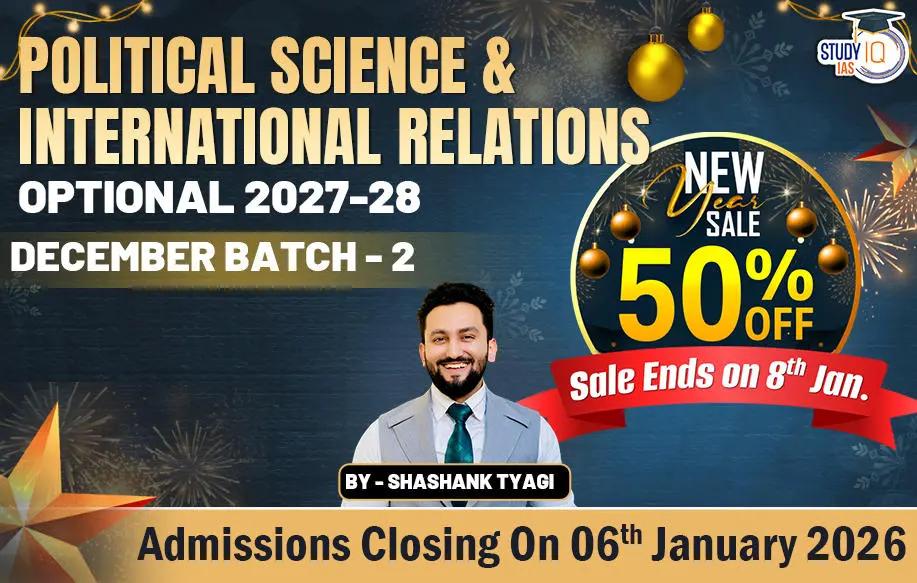Table of Contents
Context: The Supreme Court has refused to set aside a provision that allows candidates to contest polls from two constituencies simultaneously.
More on the News
- Petition: The plea sought the court to declare Section 33(7) of the Representation of People Act, 1951 invalid and ultra vires.
- Court’s Views: The court chose to leave the issue to the wisdom of the Parliament by saying that it was a policy matter and an issue concerning political democracy.
- Government’s views: The government objected to the petition in 2018. It had argued that the law cannot curtail the candidate’s right to contest elections and curtail the polity’s choice of candidates.
- The government further added that the one-candidate-one-constituency restriction would require a legislative amendment.
- Views of the Election Commission: The EC supported the idea of an amendment to Section 33(7).
- If a candidate contests from two constituencies and wins from both, he/she will have to resign from one of the seats, resulting in a by-election.
- Such a by-election would require unwanted additional expenditure, which can be avoided by restricting contests from more than one seat.

What is the Need to Contest from Two Seats?
- Increase influence: Political leaders contest from two seats in order to extend their influence over the region and help win more seats for the party.
- Back-up option: Candidates not sure of their victory in one constituency contest from another in order to have a backup option.
Issues Arising due to Contest from two Seats
- Waste of resources: Campaigning and contesting in more than one seat can be a waste of resources and money, both for the candidate and the government.
- Burden on the public exchequer: After giving up one of the seats, a by-election is immediately triggered, which is a burden on Public Exchequer.
- Contradictory provision: Since Section 70 of RPA bars candidates from representing two constituencies in the Lok Sabha/state Assembly, it would be unnecessary to allow them to contest from two seats.
- Violate principles of democracy: In a democracy where one person has one vote, it would be unfair to allow the candidate to contest from two seats.
- Injustice to voters: Quitting a winning constituency would be injustice to voters of the constituency, who have voted for the candidate.
- Non-representation: Since by-elections are to be held within the maximum period of 6 months, the constituency will go unrepresented if the winning candidate resigns from the seat.

Way Forward
- Cost burden on candidate: EC had suggested that a candidate should deposit an amount of Rs 5 lakh for contesting in two seats in an Assembly election or Rs 10 lakh in a general election.
- The deposited amount would be used to cover the expenses for a by-election in the eventuality that he or she would win in both constituencies and had to relinquish one.
- Declaring runners-up as winner: Another suggestion is to declare the candidate securing the second-highest vote share as the winner in case the constituency is vacated by the winning candidate.


 Payments Regulatory Board (PRB)
Payments Regulatory Board (PRB)
 OPSC OCS Notification 2026 Out: Apply On...
OPSC OCS Notification 2026 Out: Apply On...
 UPPSC LT Grade Admit Card 2025 Out @upps...
UPPSC LT Grade Admit Card 2025 Out @upps...

























